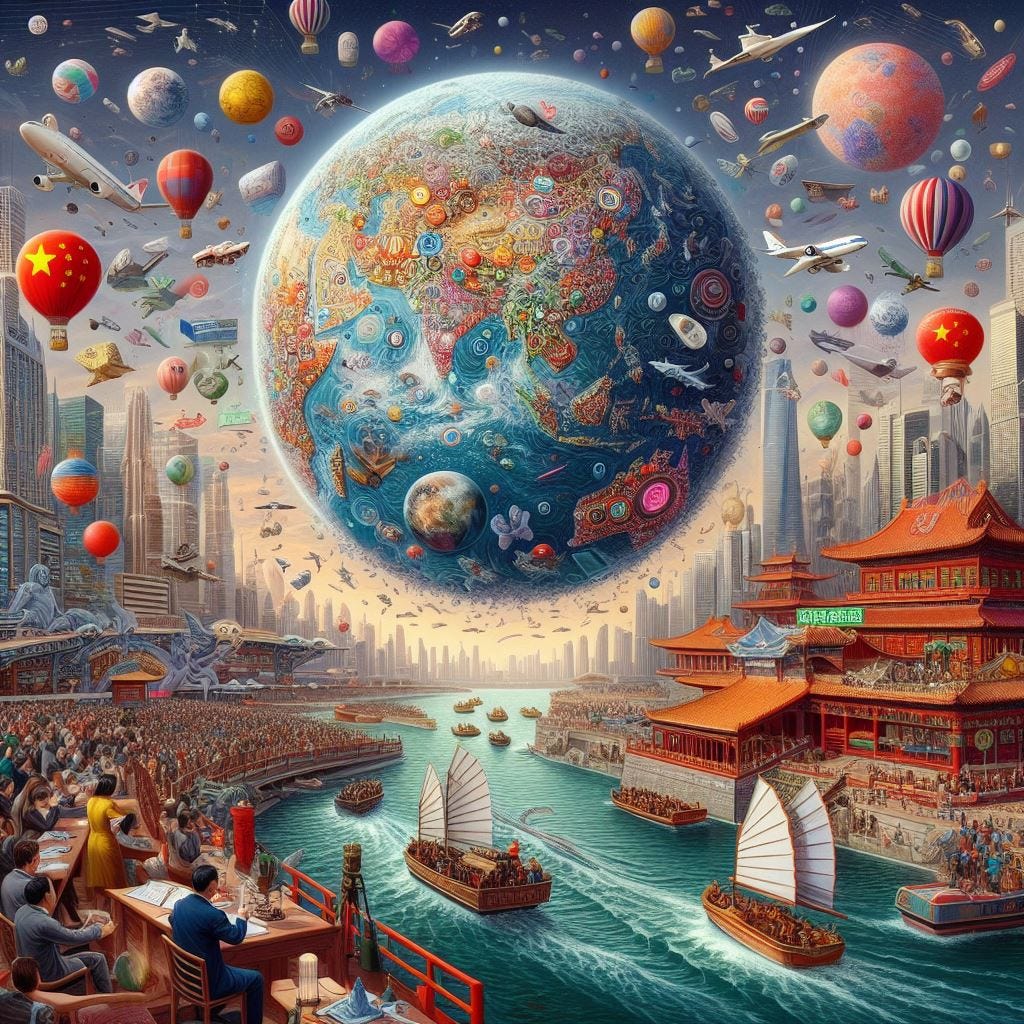The World in 2024 as Viewed by Yan Xuetong (Part 1)
"In 2024, the world as a whole will head towards more conflicts and confrontation, underpinned by the current [wave of] anti-globalisation."
I thought it fitting to begin 2024 with a broad-ranging commentary of world affairs by China’s most famous international relations scholar, Yan Xuetong (阎学通). In an interview conducted last month by The Paper (澎湃新闻), Yan looks back at some of the predictions he made just over a decade ago in his book “Inertia of History: China and the World by 2023” and provides his assessment of the major structural changes currently underway in the world. Given its length, part two of this interview will be sent out later this week.
Wishing you all a very happy New Year,
Thomas
Summary
Liberal international norms such as free trade and human rights are in retreat across the world. Paradoxically, the United States has been the main driver behind this change.
Contrary to Yan’s prediction, East Asian countries are no longer hedging between China and the US. Many are choosing sides.
We have entered a bipolar world order dominated by the US and China, not a multipolar one.
The role of smaller countries and multilateral organisations in shaping tomorrow’s world will probably continue to decline.
The extent to which the current global order will change over the next couple of decades will depend in large part on the strategies adopted by world leaders. A preference for armed conflict, ideological confrontation or technological competition will determine the speed of this change.
Decoupling, de-risking, internal circulation and the flouting of international norms are all manifestations of the world’s current “anti-globalisation” wave. There is currently no driving force that can help buck this trend.
Security and economic risks are rising. China must adapt to a world in which countries are adopting protectionist policies, are less inclined to cooperate with one another and in which Washington’s rivalry with Beijing will continue to hurt Chinese interests.
To address this, Beijing should shift its diplomatic focus primarily to its neighbourhood and strive to foster friendlier relations with countries in and around its periphery.
The Author
Name: Yan Xuetong (阎学通)
Date of birth: 7 December 1952 (age: 71)
Position: Director of the Institute of International Relations, Tsinghua University.
Previously: Researcher at China Institutes of Contemporary International Relations (CICIR) from 1982-1984 and 1992-2000.
Research focus: International relations
Education: BA Heilongjiang University (1982); MA University of International Relations (1986); PhD University of California, Berkeley (1992)
For a more detailed overview of Yan’s career, interests, awards and publications, see here.
IN 2024, THE WORLD WILL HEAD TOWARDS MORE CONFRONTATION UNDERPINNED BY ANTI-GLOBALISATION (EXCERPTS)
Yan Xuetong (阎学通)
Interview by The Paper (澎湃新闻) – 29 December 2023
(Illustration: The world in 2024 according to DALL·E 3)
I. On the predictions Yan made in 2013 in his book “Inertia of History: China and the World by 2023”
“The biggest surprise in [my] prediction errors was the decline of liberal values and the rise of populism, with the United States becoming the main force undermining liberal international norms. International relations theory suggests that a leading power will defend the international norms it has established in order to preserve its dominant position and that it is the rising power that will demand that [existing] international norms be changed.”






